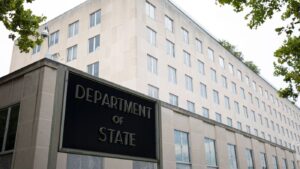In a significant move affecting one of the nation’s most prestigious universities, the U.S. Department of Homeland Security has stripped Harvard University of its ability to enroll international students. This action marks a turning point in the ongoing dispute between the Trump administration and the Ivy League institution.
The Conflict Unfolds
The revocation was communicated through a letter to Harvard, signaling a crescendo in tensions that had been escalating over several weeks. The administration’s decision follows Harvard’s resistance to changing its campus policies as demanded by the government. Previously, the Trump administration had already halted billions in federal funding to the university. The loss of the ability to admit international students presents another financial challenge for Harvard, given the significant revenue these students contribute.
Details from the Department of Homeland Security
According to the letter from DHS, the university’s Student and Exchange Visitor Program certification has been withdrawn. A DHS statement elaborated, “Harvard can no longer enroll foreign students, and existing foreign students must transfer or lose their legal status.” The statement accused Harvard’s leadership of fostering an unsafe environment, citing incidents involving “anti-American, pro-terrorist agitators” allegedly harassing individuals, including Jewish students. DHS Secretary Kristi Noem remarked, “it’s a privilege, not a right,” for universities to enroll and benefit from foreign students’ tuition.
Harvard’s Response
In response, a Harvard spokesperson declared the government’s actions as unlawful. They asserted, “we’re fully committed to maintaining Harvard’s ability to host our international students and scholars who hail from more than 140 countries and enrich the university and this nation immeasurably.”
Impact on International Students
International students make up a significant portion of Harvard’s student body, with nearly 6,800 students enrolled this year, representing over a quarter of the total student population. With tuition fees approaching $60,000, these students contribute substantially to Harvard’s finances. More broadly, international students contribute over $50 billion to the U.S. economy, as recorded in 2023. They typically pay their tuition without federal financial aid, unlike domestic students.
Future Implications
The DHS letter demands Harvard to meet certain conditions within 72 hours to regain its certification. These include providing records of disciplinary actions, protest participation, and any unlawful activities by international students. The immediate effect of this order leaves current international students at Harvard in a precarious situation, as they might need to transfer, change their status, or leave the country. With graduation looming, their immediate future remains uncertain. Harvard has already initiated a lawsuit against the administration regarding the federal funding freeze, with a trial scheduled for July.
For further details, please refer to the original NPR article.






